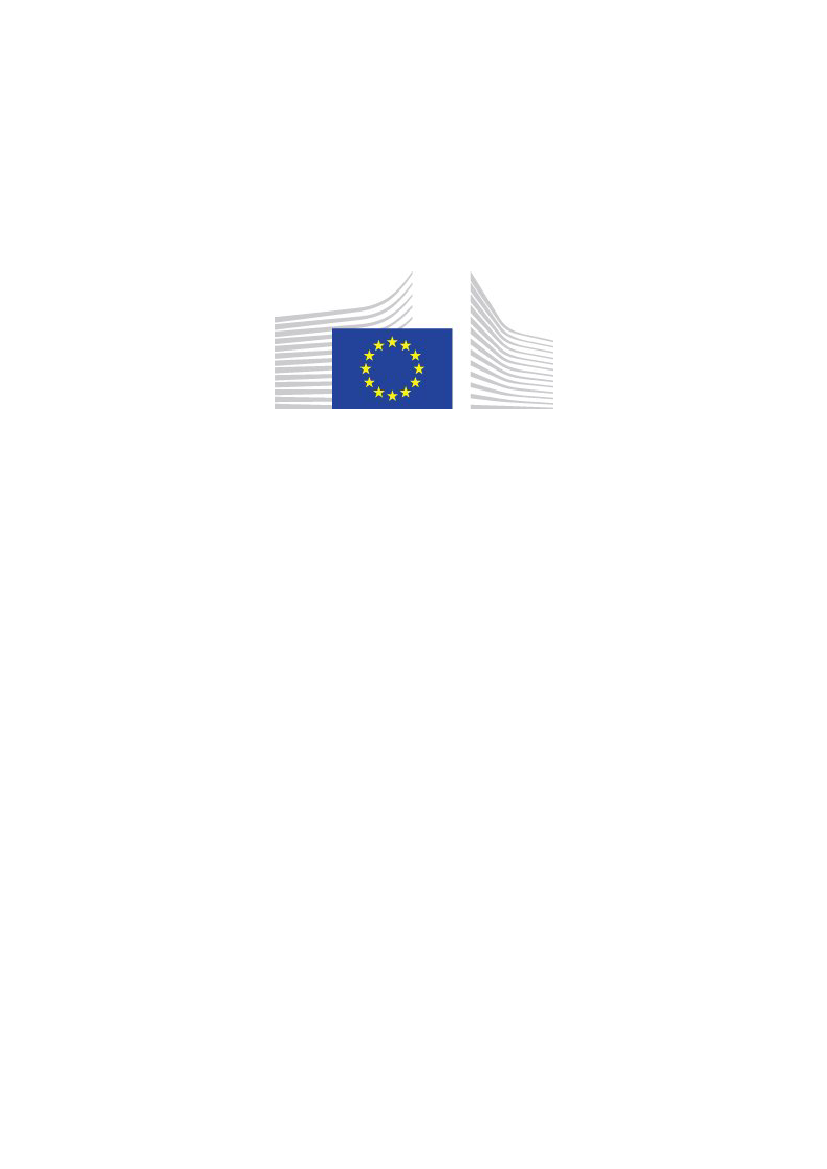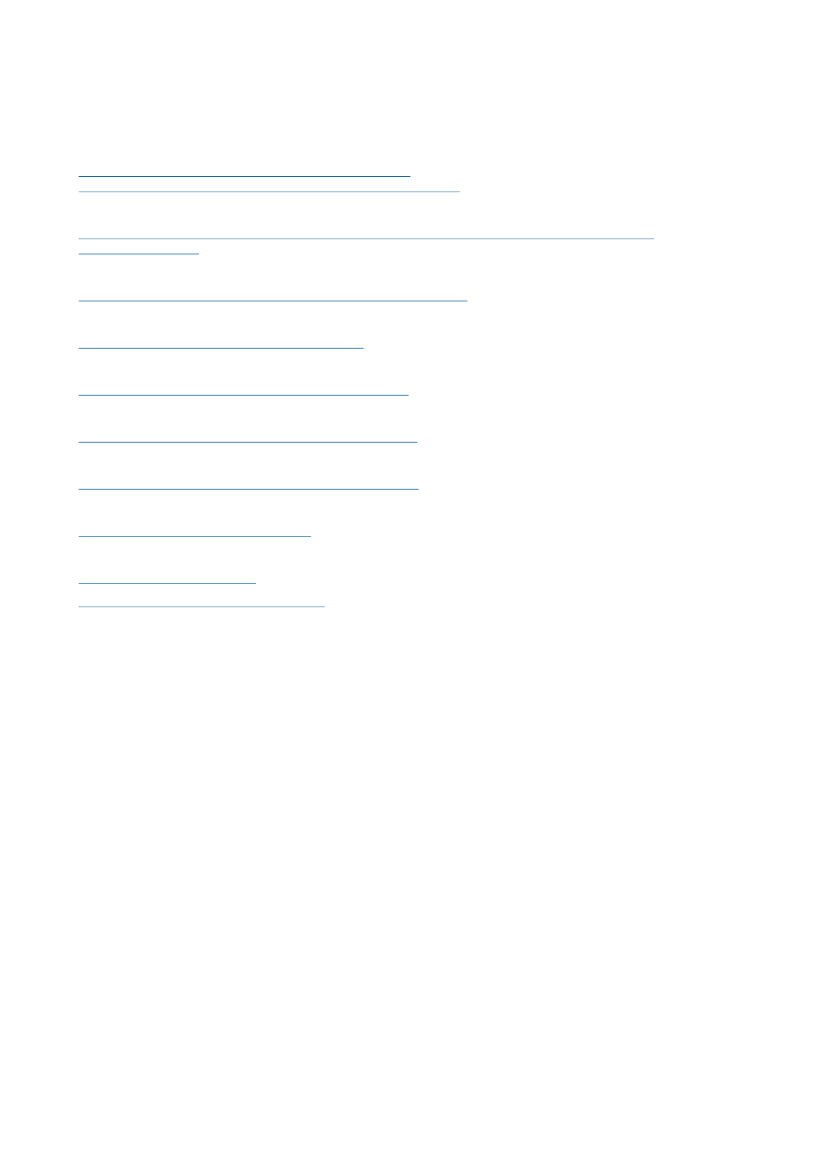Udenrigsudvalget 2012-13
URU Alm.del Bilag 110
Offentligt
Communication 'A decent Life for All: Ending poverty andgiving the world a sustainable future'Reference: MEMO/13/143 EventDate: 27/02/2013Other available languages : None
EUROPEANCOMMISSIONMEMOBrussels, 27 February 2013
Communication 'A decent Life for All: Ending poverty andgiving the world a sustainable future'WHAT'S THE ISSUE?Eradicating poverty and ensuring that prosperity and well-being are sustainable are two of the pressingchallenges facing the world.Over the last decade, the Millennium Development Goals (MDGs) have helped drive the eradication ofpoverty and further human development. Progress has been made, but challenges remain that still needto be addressed. In autumn 2013, a UN General Assembly special event will take stock of the effortsmade towards achieving the MDGs, discuss ways to accelerate progress before 2015, their target year,and start exchanging on what could follow after 2015.At the same time, at the Rio+20 Conference in 2012, the international community agreed to step upaction on key sustainability challenges and started the process for the formulation of SustainableDevelopment Goals (SDGs) that will be taken forward by the UN Open Working Group on SDGs. Thecommitments made at the Rio+20 Conference in June 2012 now need to be implemented, and theCommunication outlines some key actions to that end.The challenges of eradicating poverty and ensuring sustainability are universal and inter-related andneed to be addressed together by all countries. The Communication proposes a common EU approach tothese issues and several principles for an overarching framework for post-2015 which would provide acoherent and comprehensive response to the universal challenges of poverty eradication and sustainabledevelopment in its three dimensions, thereby ensuring a Decent Life for All by 2030.WHY IS THIS COMMUNICATION NEEDED?This Communication is the first step for following up the commitments of Rio+20 at EU and internationallevel and for the purpose of the review of MDGs and the establishment of a post 2015 framework. Itproposes a common approach for the engagement of the EU in forthcoming international processes andevents relating to poverty eradication and sustainable development (notably: UN Open Working Groupon SDGs and the UN General Assembly Special Event on the MDGs), enabling it to provide coordinatedand timely inputs. This Communication suggests elements for such a common approach.
WHAT ARE THE MAIN ELEMENTS OF TODAY’S COMMUNICATION?The Communication takes stock of MDG achievements and addresses the need to implement the mainRio+20 outcomes and commitments through actions at EU and international level. It further addressesthe fact that the follow-up to the Rio+20 Conference and the MDG review and future developmentagenda processes are currently running on two separate tracks. The Communication recommends that,as soon as possible, these processes should converge and be integrated into a single overarchingframework for post-2015.The overall objective of this new post-2015 framework should be to ensure a "Decent Life for All" by2030, ending poverty in all its dimensions (economic, social, environmental) and giving the world asustainable future. This framework would include a limited set of goalsThe framework should cover:basic human development (based on updated existing MDGs and also reflecting issues such associal protection),drivers for sustainable and inclusive growth and development to ensure structural transformation ofthe economy needed for:the creation of productive capacities and employment and the transition to an inclusive greeneconomy capable of addressing climate challenges, andthe sustainable management of natural resourcesThe framework should also address justice, equality and equity, as well as the empowerment of womenand gender equality, which are not only vital for inclusive and sustainable development, but alsoimportant values in their own right.WHO WILL BENEFIT AND HOW?The objective of the framework would be to ensure a Decent Life for All: it would apply to all countriesand benefit every citizen of the world, irrespective of where they live.The Commission suggests global goals representing commitments by all countries, together with tailoredgoals and/or targets at the national level, in order to increase domestic ownership and accountability.Within the EU, the follow up to Rio+20 through a range of actions and initiatives will implementcommitments for sustainable development at EU and Member States level, in particular through theEurope 2020 Strategy.WHAT ARE THE NEXT STEPS?In order to further elaborate thinking on goals, the EU should continue its open dialogue with allrelevant stakeholders. This will contribute to the EU's active input into the work of the Open WorkingGroup on SDGs, which will make recommendations for action to the UN General Assembly.The EU needs to engage fully in the forthcoming international processes with coherent and coordinatedinputs at the UN and in other relevant fora. A debate with Council is envisaged in spring 2013, with aview to the agreement of the EU's common position for such international processes and events.Discussions with other EU institutions are also expected. An EU common approach will be needed bymid-2013.Background: EU contribution to the Millennium Development GoalsTaking the EU and Member States collectively, the EU is the world’s largest provider of officialdevelopment assistance (ODA), amounting to EUR 53 billion in 2011, or half of the global total. The EUis also the most significant trading partner for developing countries, as well as a key source oftechnology, innovation, investment and entrepreneurship. Together, these elements have meant thatthe EU has been able to make a significant contribution to the achievement of the MDGs.For example, between 2004 and 2009, more than 9 million pupils were enrolled in primary educationthanks to Commission support (MDG 2 – Achieve Universal Primary Education). The Commissioncontributed to the inoculation of 5 million children against measles in the same period (MDG 4 – ReduceChild Mortality), while Commission support resulted in more than 10 million consultations inreproductive health and 4 million births attended by skilled health personnel (MDG 5 – ImproveMaternal Health).
For more informationFull text of the Communication:http://ec.europa.eu/europeaid/documents/2013-02-22_communication_a_decent_life_for_all_post_2015_en.pdfPublic consultation on the post-2015 development agenda, 2012:http://ec.europa.eu/europeaid/how/public-consultations/towards_post-2015-development-framework_en.htmPublic consultation on Rio+20 follow up, 2012:http://ec.europa.eu/environment/consultations/rio20_en.htmWebsite of EuropeAidhttp://ec.europa.eu/europeaid/index_en.htmWebsite of DG Environmenthttp://ec.europa.eu/dgs/environment/index_en.htmWebsite of the European Commissioner for Development, Andris Piebalgshttp://ec.europa.eu/commission_2010-2014/piebalgsWebsite of the EuropeanCommissioner for Environment, Janez Potočnikhttp://ec.europa.eu/commission_2010-2014/potocnikMillennium Development Goalshttp://www.un.org/millenniumgoals/Rio+20 Conference on Sustainable Development, 2012http://www.uncsd2012.org/http://sustainabledevelopment.un.org/



